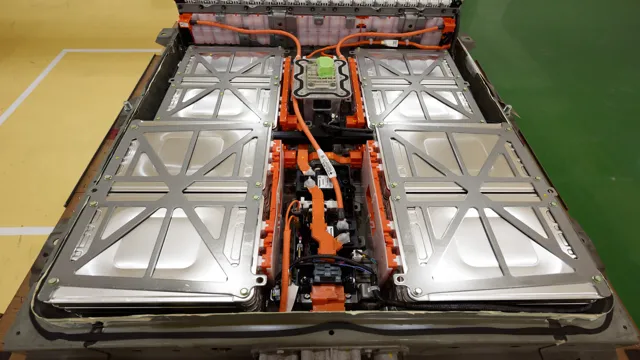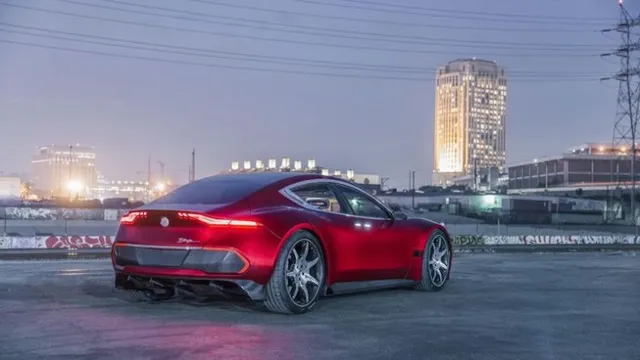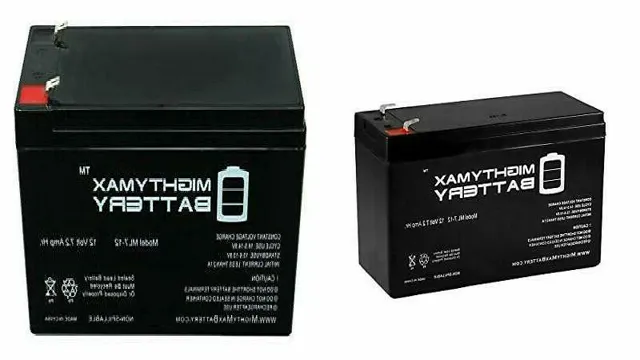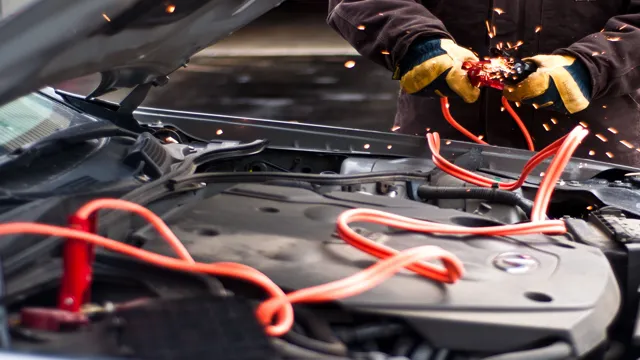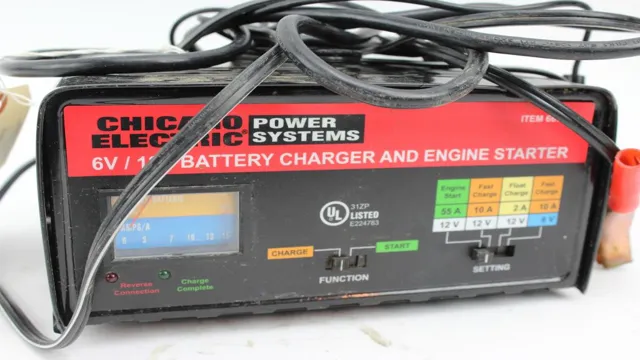Revving Up the Truth: A Look into Electric Car Batteries after 3 Years
As electric cars become more popular, there’s a growing interest in understanding how long their batteries last. For most people, this is the primary concern when it comes to electric vehicles. Many drivers want to know how long an electric car battery will last after purchase.
How long can it retain its charge, and what happens to it after a few years of driving? In this blog, we’ll discuss electric car batteries three years after purchase. We’ll explore the factors that determine battery lifespan and provide some tips on how to extend it. We’ll also touch on what happens to a battery after three years of use and whether it’s still worth investing in an electric car.
So, if you’re considering buying an electric car or already have one and want to know more, keep reading.
Battery Capacity and Range
Electric car batteries have come a long way in the last few years, but the question of how they hold up over time still lingers. After three years, the overall capacity of most electric car batteries will have degraded, resulting in reduced range. The rate of degradation varies depending on the make and model of the car and factors such as climate and usage patterns.
In general, however, most electric car batteries still retain about 70-80% of their original capacity after three years of use. This means that, after three years, most drivers can expect their electric car to have a range of around 100-130 miles on a single charge. While this is still less than some gas-powered vehicles, it’s important to note that electric cars are becoming more affordable while maintaining the benefits of being better for the environment and cheaper to operate.
As the technology continues to improve, we can expect electric car batteries to last longer and offer even greater range in the years to come.
Analyzing how much the electric car battery has degraded over time
Electric car batteries are at the forefront of modern technology. However, their capacity and range are susceptible to deterioration over time. This is because lithium-ion batteries depreciate over multiple charging cycles, meaning that their maximum charging capacity decreases over time.
Factors like temperature, rate of discharge, and charging frequency also affect the degradation of battery capacity. This degradation can significantly impact the range of electric vehicles, making it crucial to monitor the battery’s health regularly. Fortunately, there are various techniques for evaluating battery degradation, such as using diagnostic software, monitoring the vehicle’s efficiency, or measuring its range on a full charge.
Knowing the status of the battery’s health can ultimately help electric vehicle owners extend their battery’s lifespan, which can save them money in the long run.
Comparing the current range to the manufacturer’s range estimate
When it comes to electric vehicles, one question that often arises is how to compare the manufacturer’s stated range with the actual range that can be achieved. One factor that can significantly impact range is battery capacity, which dictates how much energy can be stored and used to power the vehicle. Generally, larger battery packs correspond to longer ranges, but it’s important to keep in mind that other factors such as weather, terrain, and driving habits can also play a role.
The manufacturer’s range estimate is typically based on ideal conditions and may not reflect real-world scenarios. That being said, it can still be a useful benchmark when comparing different electric vehicles. To get a better idea of what range to expect, it may be helpful to look at third-party tests and reviews, which can offer a more realistic view of what range can be achieved in everyday driving situations.
Ultimately, it’s important to take a holistic view of range and consider factors beyond just battery capacity and manufacturer estimates. By doing so, you can make a more informed decision when choosing an electric vehicle that meets your needs.
Battery Health and Maintenance
After 3 years of using an electric car battery, it’s important to pay attention to the battery’s health and maintenance. Regularly checking and maintaining the battery can help extend its lifespan and ensure optimal performance. This includes monitoring the battery’s charging patterns and avoiding frequently charging it to 100% or allowing it to drain completely.
Another essential step is to properly store the car and battery when not in use, as extreme temperatures can negatively affect the battery’s health. It’s also recommended to regularly clean the battery and cooling system to prevent any buildup or corrosion. By following these simple steps, electric car owners can enjoy their vehicles for many years to come and get the most out of their battery investment.
Explaining how proper battery maintenance impacts battery health
Battery health is crucial for the functionality of all devices, from smartphones to electric cars. Proper battery maintenance is essential for ensuring longevity and optimal performance. One key aspect of battery maintenance is avoiding extreme temperatures as they can damage the battery cells or reduce their capacity.
Additionally, it is important to keep the battery charged within an optimal range and avoid overcharging or draining the battery completely. Regular calibration and cleaning of battery terminals can also be helpful in maintaining battery health. Failing to maintain the battery can lead to premature aging, reduced capacity, and even permanent damage.
Therefore, taking care of your battery is an investment in the longevity and functionality of your devices.
Tips for maintaining healthy batteries
Battery Health and Maintenance One of the most crucial aspects of using electronic devices is to maintain their batteries properly. This not only ensures the longevity of the battery but also improves its performance. A few tips for maintaining healthy batteries include avoiding extreme temperatures, both high and low, as they can adversely affect the battery life.
It is advisable to keep the device in moderate temperatures. Additionally, avoiding overcharging the battery can also damage its cells, resulting in a reduced battery life. It is best to unplug the charger once the battery is charged to its full capacity.
Furthermore, if the battery is not in use for an extended period, it’s best to store it partially charged rather than completely drained. This helps in preventing the cells from going inactive and reducing the overall battery life. By following these simple steps, one can ensure healthy and long-lasting batteries for their electronic devices.
Discussing manufacturer warranties and coverages on battery degradation
When it comes to purchasing an electric vehicle, it’s essential to understand the battery warranty and coverage. Manufacturers typically offer a warranty against battery defects for a specific number of years or miles. However, the warranty doesn’t usually cover battery degradation, which is the natural reduction of battery capacity over time.
To ensure your battery’s longevity, it’s crucial to practice good battery health and maintenance habits, such as avoiding deep discharge cycles and fast charging whenever possible. This will help to slow down the battery degradation process and extend your battery’s lifespan. It’s also a good idea to regularly monitor your battery’s health and perform any necessary maintenance, such as updating the battery management system software.
By taking care of your electric vehicle’s battery, you can ensure that it will last for many years and deliver optimal performance. So, be sure to consider battery health and maintenance when purchasing an electric vehicle and take the necessary steps to keep your battery in top shape.
Charging Behavior and Battery Life
Electric car batteries are a crucial component that directly impacts the vehicle’s range, performance, and overall experience. After three years of usage, the battery life of an electric car may start to deteriorate due to different factors such as charging behavior, use, and climate. The charging behavior of the driver can significantly impact the battery’s lifespan; fast charging, frequent partial charges, and overcharging can increase the degradation rate of the battery.
Therefore, it’s crucial to follow the manufacturer’s recommendations regarding charging, such as using a Level 2 charger and avoiding leaving the car with a full or empty battery for extended periods. Additionally, other factors like extreme temperatures and high mileage can also accelerate battery degradation. Overall, it’s important to monitor the battery’s health regularly to ensure its longevity and maintain the car’s performance and value over time.
Impact of frequent fast charging on battery life
Fast Charging, Battery Life Frequent fast charging has been a topic of controversy for many years. The technology of fast charging can be a real convenience when we’re in a hurry, but it can also affect the longevity of our battery. While fast charging is designed to take a fraction of the time required by traditional charging methods, it also generates more heat that can damage our battery in the long run.
If you are always using fast charging on your phone, you may notice that the battery’s capacity level decreases much quicker. Therefore, it’s essential to avoid frequent fast charging to extend the battery life. To minimize the risk of damage, it’s crucial to disconnect your phone as soon as it’s charged and avoid using it while charging.
Additionally, consider using a portable power bank if you need a quick charge on the go, or just be patient and charge your phone using a traditional charger. Though it may not seem as convenient, it can go a long way in preserving your battery life over time.
How to properly charge your electric car battery
When it comes to charging an electric car battery, it’s important to be mindful of how you charge it. The way you choose to charge your battery can impact its overall health and lifespan. One important thing to keep in mind is to avoid letting your battery fully discharge before charging it again.
Instead, aim to charge your battery before it hits the 20% mark. Additionally, try to use a level 2 charger whenever possible, as it is more efficient and can charge your battery faster. This will not only save you time but also prolong the life of your battery.
By being mindful of your charging behaviors, you can ensure that your battery remains healthy and functioning optimally for years to come.
Conclusion
Just like a fine wine, electric car batteries only get better with age. After three years, these power sources are still going strong and delivering the same reliable performance as they did on day one. With advancements in technology and continued investment in sustainable transportation, the future of electric cars and their batteries is bright – giving us all a reason to charge ahead into an exciting and eco-friendly world.
“
FAQs
How long does the battery of an electric car typically last before needing to be replaced?
The lifespan of an electric car battery can vary depending on several factors, but on average, it can last anywhere from 5 to 10 years. After 3 years, the battery should still be functioning well, but its overall capacity may have decreased slightly.
Is it normal for the range of an electric car to decrease after 3 years?
Yes, it is normal for the range of an electric car to decrease slightly after 3 years as the battery’s ability to hold a charge gradually declines. However, the rate of decrease will depend on how the car is used and how well the battery is maintained.
What steps can I take to prolong the life of my electric car battery?
To maintain the health of your electric car battery, it’s important to avoid fast charging frequently, avoid letting the charge drop to 0%, keep the battery cool in hot weather, and park in the shade when possible. Additionally, regular maintenance and updates can help optimize efficiency and prolong the battery’s lifespan.
How much does it cost to replace an electric car battery after 3 years?
The cost of replacing an electric car battery after 3 years can vary depending on the model of the car and the type of battery needed. On average, the cost can range from several thousand dollars to over $10,000. However, some car manufacturers offer warranties or packages that can help offset the cost.
